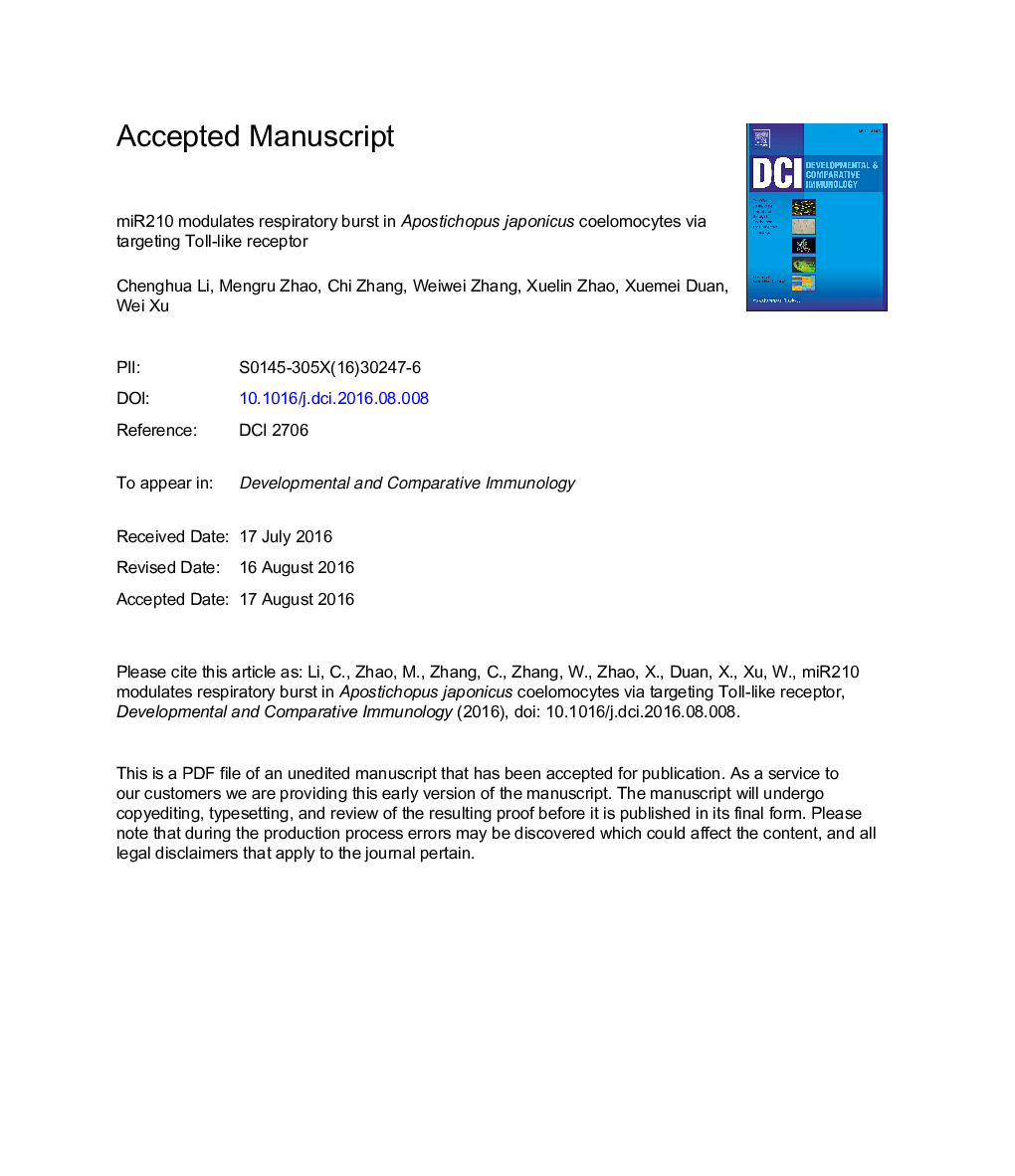| Article ID | Journal | Published Year | Pages | File Type |
|---|---|---|---|---|
| 8497884 | Developmental & Comparative Immunology | 2016 | 18 Pages |
Abstract
Immune responses of species in Echinodermata remains mysterious due to the lack of efforts made in the study of host defense mechanism in these species. More researches start focusing on this ancient immune system with the recognition the economic values of several species in this phylum, especially sea cucumbers. Here, we reported a study in the innate immunity of a sea cucumber species (Apostichopus japonicus) in response to infection of Vibrio splendidus. A novel differential expressed miRNA (miR-210) from the diseased sea cucumber coelomocytes was identified in our study. This miRNA molecule modulates Toll-like receptor gene (AjToll) expression via binding 3â²UTR region from 906 nt to 930 nt. Upon the challenge of V. splendidus, coelomocytes in A. japonicas demonstrated a upregulation of AjToll but a downregulation of miR-210. Transfection of miR-210 agomirs in coelomocytes significantly depressed the expression of AjToll in cells. As a result of AjToll expression inhibition by miR-210, the AjToll downstream molecules involved in reactive oxygen species (ROS) were also altered in vivo. This ROS pathway alternation was consistent with that caused by knockdown of AjToll through small inference RNA (siRNA). Taken together, the results of this study demonstrated a novel immune regulatory pathway via miRN-210 in A. japonica, which provides basic knowledge in exploring innate immunity of Echinodermata, and also can be reference in disease control in sea cucumber culture industry.
Related Topics
Life Sciences
Biochemistry, Genetics and Molecular Biology
Developmental Biology
Authors
Chenghua Li, Mengru Zhao, Chi Zhang, Weiwei Zhang, Xuelin Zhao, Xuemei Duan, Wei Xu,
